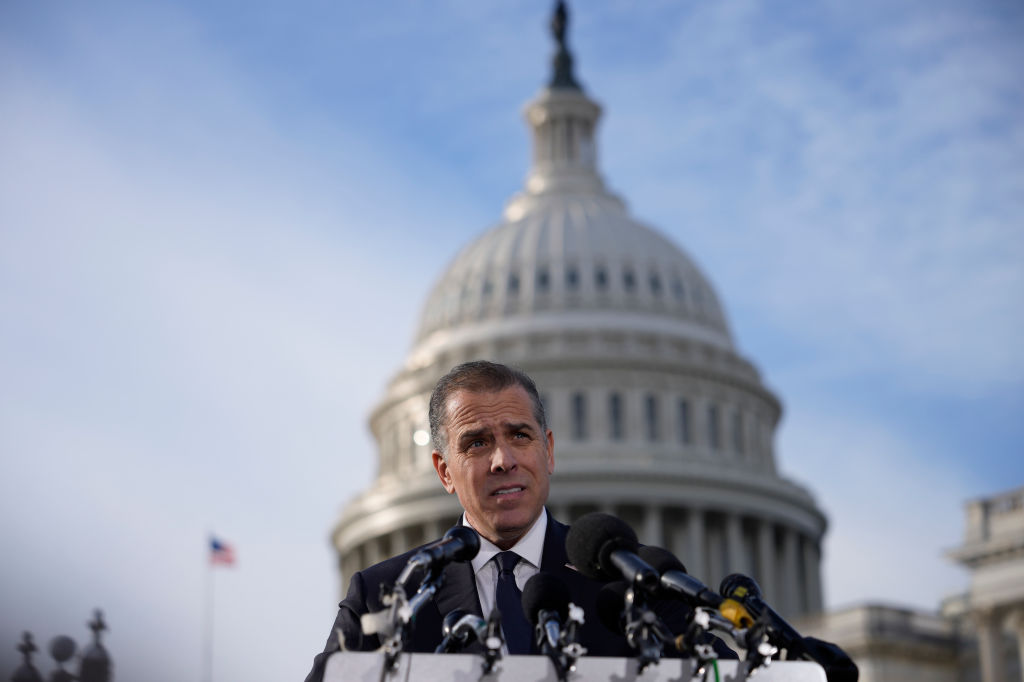Article II, Section Four, of the Constitution provides that “The President, Vice President, and all civil Officers of the United States shall be removed from Office on Impeachment for, and Conviction of, Treason, Bribery, or other high Crimes and Misdemeanors.” Other sections give the House of Representatives the sole power of impeachment and the Senate the power to try impeachments and to convict with a two-thirds vote of senators present.
But impeachment has been very rarely used in this country. Indeed the House has voted to impeach a federal official only twenty-one times in the 234 years the Constitution has been in effect.
No official has ever been accused of treason and only three of bribery, all federal judges. One judge, Alcee Hastings, who had been convicted in the Senate of bribery in 1989, but not barred from future office, was elected to the House that had impeached him four years later.
Senator William Blount of Tennessee was impeached in 1798 for conspiring to assist Britain in capturing Spanish territory. But his Senate seat had already been “sequestered,” and the Senate decided it did not have jurisdiction, establishing the precedent that members of Congress were not subject to impeachment.
One cabinet member, William Belknap, secretary of war in the Grant administration, was impeached for corruption and resigned the same day. Fifteen impeachments were of federal judges. Most resigned rather than face a trial in the Senate.
With only treason and bribery specifically mentioned, it has been up to the House to decide what other “high crimes and misdemeanors” were grounds for impeachment. This has sometimes rendered impeachment a political, rather than a quasi-judicial, act.
Thomas Jefferson wanted associate Supreme Court justice Samuel Chase impeached for political bias and arbitrary rulings on the bench, while acting as a trial judge (as Supreme Court justices did until the late nineteenth century). But his real motive was to remove Federalists from the bench. Despite having 23 Democratic-Republican senators, and only twenty-one votes needed for conviction, none of Chase’s articles of impeachment mustered more than eighteen votes to convict.
And three impeachments, of course, were of presidents. All were essentially political in nature.
In 1868 the House voted to impeach President Andrew Johnson for violating the Tenure of Office Act of 1867 (passed over Johnson’s veto) which required the Senate to approve the dismissal of any federal official whose appointment had received the advice and consent of the Senate. While the Supreme Court never ruled on the Act directly, it indicated in a later case that it was almost certainly unconstitutional. And, indeed, it is hard to see how it can be squared with the first sentence of Article II, which says that, “The executive Power shall be vested in a President of the United States of America.”
Johnson, a southerner loyal to the Union, had been nominated for vice president at the behest of President Lincoln in 1864 on the National Union Party ticket, a temporary amalgamation of the Republican Party and pro-Union elements of other parties. But Johnson, a Democrat, favored a quick return of the Confederate states to the Union, and no protection for the newly freed slaves.
The Republicans in Congress overwhelmingly favored a strong Reconstruction program before the states were readmitted. There has seldom, if ever, been a period in American history when the White House and Congress were more at odds.
There had been an attempt to impeach Johnson in 1867. But it had stalled, partially because, there being no vice president, the next in line for the presidency was Benjamin Wade of Ohio, the president pro tempore of the Senate. He was too radical even for the radical Republicans (he favored female suffrage, for instance).
But the next year, the House voted 126 to 47 to impeach Johnson, listing eleven articles. The partisan nature of the vote is clear as no Democrat voted in favor and no Republican voted against impeachment.
But at the trial in the Senate, the vote was thirty-five to nineteen in favor, one shy of the number needed to convict. Ten Republican senators (22 percent) voted against conviction.
There was no serious attempt to impeach a president again for over a 100 years, until the Watergate scandal brought Richard Nixon close to impeachment. Had he not resigned as president, it is likely he would have been not only impeached but convicted.
In 1998, the Monica Lewinsky scandal produced the second presidential impeachment. But while Bill Clinton had undoubtedly committed perjury (he lost his law license because of it), only five Democrats in the House voted in favor of impeachment on that charge and five Republicans against it. On the charge of obstruction of justice, twenty-eight Republicans voted against it and five Democrats in favor.
In the Senate, all Democrats voted against conviction on both counts. On the charge of perjury, ten Republicans voted against conviction, so it failed to get a majority let alone two-thirds. On the obstruction of justice charge, Clinton was cleared by a vote of 50-50. The Republicans who voted against conviction argued that Clinton’s transgressions, while real and serious, had been personal not official.
The two impeachments of Donald Trump were even more partisan. The first, in 2019, involved a quid pro quo with a foreign leader, and obstruction of Congress for resisting the impeachment inquiry. But you-give-me-this-and-I’ll-give-you-that is practically the mother’s milk of politics, both foreign and domestic. He was acquitted in the Senate, although Mitt Romney became the first senator to vote for the conviction of a president of his own party.
In his second impeachment, for “inciting insurrection” in the January 6 riot at the Capitol, the House voted 232-197 on January 13 to impeach, with a record number of the president’s party voting aye. The trial in the Senate took place after Trump left office, so Chief Justice John Roberts declined to preside. Trump was acquitted, 57-43 — not enough votes to convict. Again there was a record number of his party voting to convict.
Now, an impeachment inquiry is likely in the House against President Biden. Barring revelation of conclusive evidence of bribery, conviction in the Senate is very unlikely, even if an impeachment is voted in the House.
With two, possibly three, presidents being impeached in the last twenty-five years, and only one in the first 209 years of the Constitution, it is time to question the use of impeachment for anything but truly “high crimes.”


























Leave a Reply